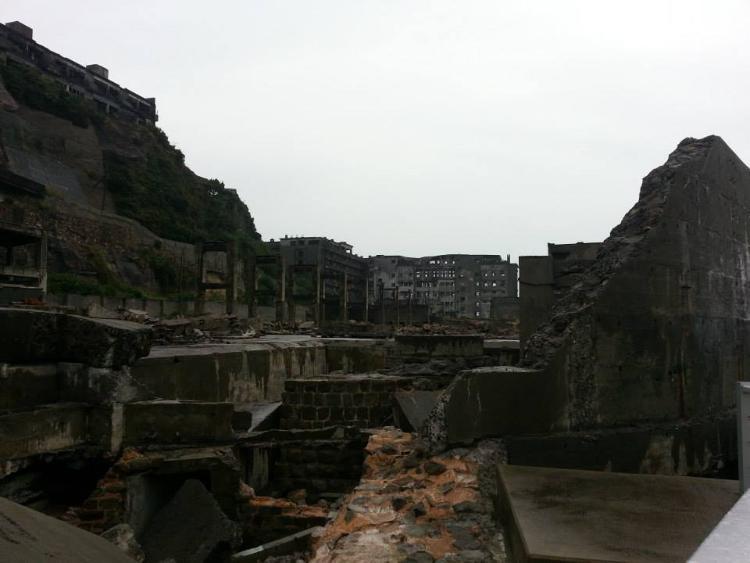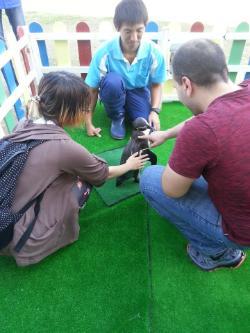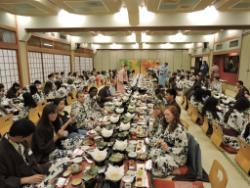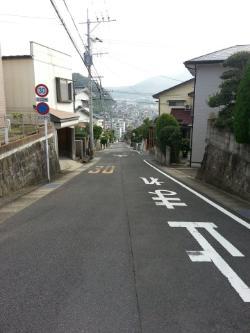

1. What’s it like to live and study in another country?
It was an eye-opening experience. I made a lot of new friends, explored so many beautiful and historically important places, and experienced things that I could have only dreamed of in the past. It was a challenge to adjust to cultural expectations as well as using nothing but a language that I had only studied for a year prior- but I managed to make do and improve quite a bit.
2. What are classes like?
Some classes weren't like I expected them to be, but many of them were beyond expectations. My language class was small, which was extremely helpful, and classes like Japanese Film and Japan's Encounter with Christianity really gave me a look at Japanese culture as well as many historical aspects involving Nagasaki that I hadn't known of before.
3. What is it like getting to know new people from a different culture?
It was fun! Many of them were excited to talk to us about a variety of things, and were also excited to try practicing and learning English with us. We exchanged a lot of cultural information, and overall it was fun and easy going since making international friends is always a fun thing.

4. What else was enjoyable about your experience?
On Halloween, I went to 'Gunkanjima', an abandoned coal mining island that was opened up to tourists in recent years. When I was younger, I found out about the island and was so fascinated by it, so to be able to go and see the place in real life was surreal. It was literally a dream come true! I also got to go to a penguin museum and pet penguins! They were a lot softer than I anticipated.
5. What about family and friends back home?
I would frequently message friends and family back home, sometimes even doing a video chat with them while at school and showing them around. I even sent home care packages! Leaving them for so long was hard, but our frequent contact made it feel like they were still right next to me.

6. Saying goodbyes and returning home?
It was difficult and I was constantly crying as I said goodbye. In the end, I chose to say the English equivalent of “see you later” rather than “goodbye”. I wanted to imply that I would see everyone very soon compared to a long parting, which somehow made it easier on me. Even now, almost a month after returning, I still miss Nagasaki very much, but surround myself with friends and family that I've missed.







